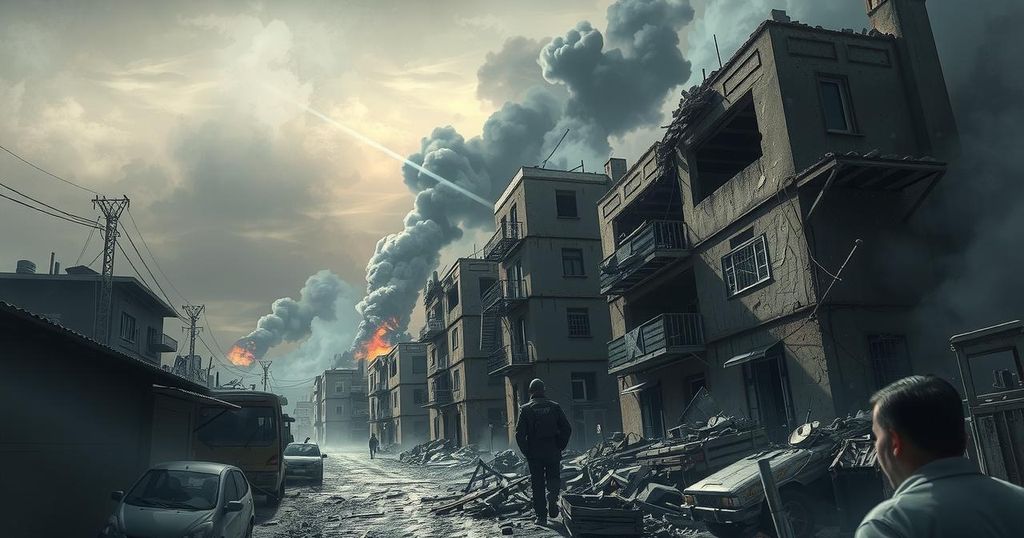Israel Intensifies Attacks on Iran Amid Cancelled Nuclear Talks
Israel has continued its military campaign against Iran, escalating attacks and targeting military and energy infrastructures. Prime Minister Netanyahu rejected international calls for restraint, indicating that Israel’s operations would intensify. Meanwhile, Tehran has canceled nuclear talks, and fears of a broader regional conflict persist as casualties mount on both sides.
Continuing its military campaign, Israel struck Iran for a second consecutive day on Saturday, with Prime Minister Benjamin Netanyahu announcing plans to intensify these operations. Amid this conflict, Tehran has canceled nuclear talks that were previously seen as the best prospect for halting the hostilities. This development comes after Israel executed a surprise attack on Iran’s military leadership, targeting its oil and gas sectors, which resulted in significant damage and casualties.
In a video message, Netanyahu claimed that Israel’s strikes could hinder Iran’s nuclear program by years, while simultaneously disregarding international calls for restraint. “We will hit every site and every target of the Ayatollahs’ regime, and what they have felt so far is nothing compared with what they will be handed in the coming days,” he said. Iran reported that around 60 individuals, including children, had died in these airstrikes, as Israel indicated it had attacked over 150 targets across the country.
The escalations also saw Iran retaliating with missile strikes on Israeli territory, which resulted in several fatalities and sent citizens into shelters as air raid sirens sounded across the nation. President Donald Trump expressed support for Israel’s military actions, warning Iran of severe consequences if it failed to engage in negotiations regarding its nuclear program. However, this upcoming meeting was abruptly canceled, with Iranian officials stating that discussions were unjustifiable given ongoing assaults.
Amid concerns over energy supplies, particularly after an apparent strike on the South Pars gas field, oil prices saw a significant increase, reflecting fears of further disruptions. Iran’s military leadership is considering the possibility of closing the Strait of Hormuz, a vital passage for oil tankers, highlighting the broader implications for regional stability.
Meanwhile, the Israeli government has encouraged the Iranian populace to rise against their leaders as military operations are expected to continue for an indefinite period. The Israeli Defense Minister threatened dire repercussions if Iran continued its missile attacks. However, Tehran’s options for retaliation are hindered by prior conflicts in Gaza and Lebanon, which have weakened its capabilities to respond effectively.
The situation remains tense as Iranian officials confirmed that hundreds of missiles and drones were launched in retaliation, resulting in casualties and injuries in Israel. Citizens live under the threat of further attacks, with many unsure of their safety. Reports from Tehran describe severe destruction from Israeli strikes, including massive casualties among families in residential buildings.
Israel perceives Iran’s nuclear ambitions as an existential threat, and its military actions aim to prevent Tehran from achieving its nuclear goals. Reports from Israeli military officials indicate substantial damage inflicted on Iran’s nuclear facilities, including targets in Natanz and Isfahan. The possibility of targeting the Fordow site, heavily fortified within a mountain, remains.
The ongoing conflict between Israel and Iran has escalated, marked by intense military operations and significant casualties on both sides. Israel’s commitment to disrupting Iran’s nuclear capacity is clear, while Iran is responding with its own missile attacks. The cancellation of diplomatic talks further complicates the situation, and concerns over energy security and regional stability linger amidst the violence.
Original Source: www.euractiv.com




Post Comment